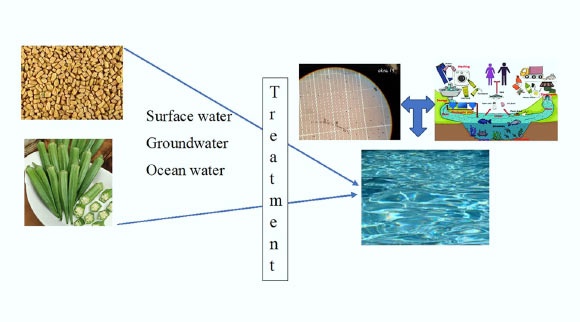Overview
- Okra and fenugreek extracts achieved up to 90% microplastic removal in ocean, freshwater, and groundwater tests.
- The plant-based polymers outperform synthetic polyacrylamide, a common but non-biodegradable water treatment agent.
- Extraction involves soaking okra pods and fenugreek seeds in water, yielding polysaccharides that bind and sink microplastics.
- Efficiency varies by water type: okra excels in ocean water (80%), fenugreek in groundwater (80–90%), and a mix in freshwater (77%).
- Published in ACS Omega, the study highlights a biodegradable, nontoxic alternative for safer water treatment applications.
